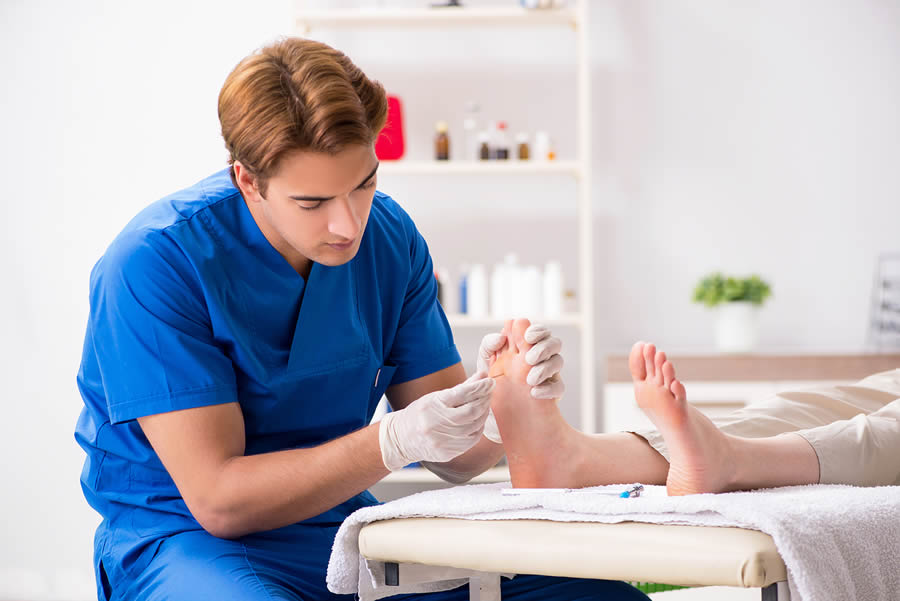
Podiatrists are doctors who specialize in the diagnosis, management, and treatment of issues affecting the lower extremities – the feet, ankles, and lower legs. As such, a podiatrist is colloquially referred to as a foot doctor. They are the go-to experts for everything from foot pain treatment to foot and ankle surgeries. In this brief article brought to you by Podiatry Centers of Maryland, we dive into what makes a podiatrist. If you live in the Maryland area and are looking for a solution to chronic or unbearable foot pain, then call Podiatry Centers of Maryland to schedule a convenient appointment.
Podiatrists provide a range of services to help patients maintain good foot and ankle health, and they can correct problems that affect a patient’s mobility. Some of the services that podiatrists offer include the diagnosis and treatment of foot and ankle injuries, management of chronic conditions like diabetes, prescription of orthotics and other medical devices, performance of foot and ankle surgeries, and advice on foot care.
More specifically, a podiatrist can help with:
Podiatrists work in various settings, including private practices and hospitals, and often collaborate with other healthcare providers to ensure that their patients receive comprehensive care.
A podiatrist is a doctor who specializes in diagnosing and treating conditions of the feet, ankles, and lower legs. Becoming a podiatrist in the United States requires a combination of education and practical experience. The path to becoming a podiatrist involves several steps that ensure you have the necessary knowledge, skills, and experience to provide quality care to patients.
The first step in becoming a podiatrist is to complete a bachelor's degree from an accredited college or university. Once you have completed your bachelor's degree, you will need to attend a four-year Doctor of Podiatric Medicine (DPM) program at a college of podiatric medicine. These programs offer a comprehensive education in podiatric medicine and surgery, including coursework in anatomy, physiology, pharmacology, and diagnostics.
After completing your DPM program, you will need to pass the National Board of Podiatric Medical Examiners (NBPME) Part I and Part II exams to demonstrate your knowledge and ability to diagnose and treat conditions of the feet, ankles, and lower legs.
Upon passing the NBPME exams, you will have to complete a two-year residency program where you will work in a hospital or clinical setting under the supervision of licensed podiatrists, gaining hands-on experience in diagnosing and treating patients.
Once you have completed your residency, you will need to obtain a license to practice podiatry in the state in which you want to work. It is expected that you remain current in the field by completing continuing education courses. Some podiatrists go above and beyond by obtaining certifications from professional organizations.
In short, head to a podiatrist if your feet, ankles, and lower legs are giving you concern. Residents in Maryland can count on Podiatry Centers of Maryland for quality and affordable care.
Everything You Need to Know About Flat Feet You may have noticed that babies usually have relatively flat feet, with a minimal or non-visible arch.…
Read More+How Does a Sprained Toe Happen? A toe sprain can be a painful and immobilizing injury. This common foot injury happens when the ligaments connecting…
Read More+Benefits of Becoming a Podiatrist Becoming a podiatrist, or foot doctor, is a remarkable journey that offers a host of benefits. It is a profession…
Read More+Why Are Your Feet So Ticklish? Ticklish feet have been a subject of amusement and laughter for some and discomfort for many others. The mere…
Read More+